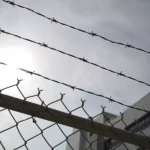In a significant development, Chinese state-backed hackers infiltrated the Dutch Ministry of Defence's internal computer networks last year. This cyber-attack, targeting unclassified systems for espionage, represents a severe intrusion into Dutch national security. Additionally, a separate breach involving public health data related to COVID-19 was reported, highlighting a broad spectrum of cybersecurity threats facing the Netherlands.
Details of the Defense Network Hack
The cyber-attack on the defense network exploited a vulnerability in FortiGate devices, identified as CVE-2022-42475. Hackers installed a remote access trojan (RAT) named COATHANGER, conducting reconnaissance and extracting sensitive information from a compartmentalized network segment. Although the attack was confined to a specific part of the system, its implications for national security are significant, demonstrating the vulnerabilities in critical infrastructure.
Exposure of Public Health Data
Simultaneously, a separate incident reported via social media involved a massive breach of Dutch government data related to COVID-19. This breach exposed millions of records concerning adverse reactions to COVID-19 measures. The revelations point to a massive attempted cover-up by not only the Dutch government but also other nations affected by similar breaches. This situation has fueled public mistrust and calls for accountability, with implications for public health transparency and government integrity.
Exclusive Breaking: Dutch Government Data hacked and startling amount of Covid adverse reactions obtained.
Astounding amount of data obtained. Millions of records now seen.
There is a massive attempted coverup not only by the Government in Holland but in every nation that has… pic.twitter.com/o2ZRd6pZks
— Jim Ferguson (@JimFergusonUK) April 16, 2024
Government and Public Response
The Dutch Defence Minister publicly attributed the defense network espionage to China, a move intended to raise awareness and bolster international resilience against such threats. This public attribution marks a rare and significant step in confronting state-sponsored cyber activities. In response to the public health data breach, there have been widespread calls for transparency and justice, with significant public outcry over the alleged cover-ups and the handling of the pandemic.
Impact and Implications
These breaches have profound implications for national security and public trust in government institutions. They expose not only the technical vulnerabilities of critical defense and health infrastructure but also raise serious questions about the adequacy of current cybersecurity measures. The incidents underscore the need for enhanced network defenses and international cooperation to mitigate state-sponsored cyber threats.
The recent cybersecurity breaches in the Netherlands—spanning defense and public health sectors—serve as a stark reminder of the sophisticated nature of state-sponsored cyber threats and the ongoing challenges in protecting sensitive information. The Dutch government's response to these incidents highlights the delicate balance required to manage diplomatic relations while addressing significant national security threats in the digital age. The call for greater transparency and accountability is likely to grow as the public demands answers and assurances that such breaches will not compromise their safety or privacy.

Carl Riedel is an experienced writer and Open Source Intelligence (OSINT) specialist, known for insightful articles that illuminate underreported issues. Passionate about free speech, he expertly transforms public data into compelling narratives, influencing public discourse.













